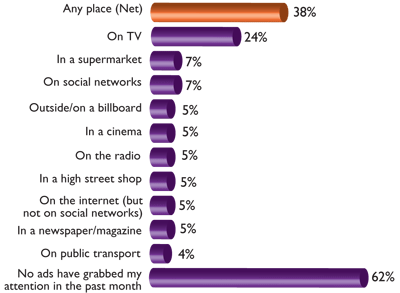Fast-growing markets, such as China and Indonesia, dominate VPN usage. However, flying under the measurement radar could lead them to suffer from a lack of investment in digital.
This post is by Emily Sanne, MEC.
Despite being considered one of the most measurable channels, the realities of accurately analysing, quantifying, measuring and tracking users of the internet through passive techniques is being impacted by swathes of internet users becoming invisible.
Part of the problem is the growth in VPN usage. VPNs allow the user to bypass traditional connections and tracking methods to use the internet from a remotely located server. In essence, it allows the user to enter the internet via a secret back entrance rather than the more traditional front door option. Although this doesn't sound like something the everyday internet user would utilise, research from Global Web Index identified 380 million users globally now access the internet via VPN, contradicting the generally held view that VPN users are a niche crowd of tech geeks.
VPN usage is predominately occurring in fast-growth nations, with Indonesia topping the population percentage usage at 45%. However, due to the enormity of its online population, china is generating the highest overall number of VPN usage with 142 million users, 31% of the population reported to using VPNs. These fast-growing markets dominate the VPN usage population and, coupled with the fact that fast-growing markets tend to have a lower level of investment in building measurement techniques and services, these countries can be dramatically under-represented. This can potentially lead to these countries consistently losing out on commercial investment and digital infrastructure; all because almost half of their internet population is invisible. When we compare these figures to mature markets with significant investment the resulting disparity is huge; only 3% of the UK and US population, for example, utilize VPNs (meaning there are only 1.25 million UK and 5 million US VPN users).
What are the motivations behind using a VPN to access the network?
Not surprisingly, with China's net censorship system imposed 'for safety', blocking users from such sites as Google, Facebook and Twitter, for those wanting to access the internet outside restrictions, the use of a VPN allows them to bypass these security measures. This fits in with GWI's top rated reason (as stated by 196 million users) for using a VPN – to access better entertainment content e.g. Netflix/YouTube. In second is access to social networks Facebook and Twitter for 155 million users. Countries that we previously considered to have low usage of Facebook and Twitter are clearly displaying a demand for these networks and we need to start weighting the data for this accordingly.
Reasons for using VPNs
Source: GlobalWebIndex

Unfortunately, the result of these millions of users being completely invisible is that estimations of audiences in countries such as China and Indonesia for Facebook and Twitter are likely to be grossly underestimated.
Impact
As GWI shows, what this highlights is that budget shouldn't be set using passive data for judging in which markets to invest. Accurate geo-targeting is a must to prevent ad pounds and dollars being misdirected.

